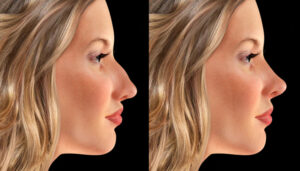Posted at 2:59 PM ET, 01/26/2011
Breast implants linked to rare cancer, FDA says
Federal health officials issued a warning Wednesday that breast implants may increase the risk of developing a very rare form of lymphoma.
The Food and Drug Administration announced it had detected a possible association between saline and silicone gel-filled breast implants and anaplastic large cell lymphoma (ALCL), a cancer of the immune system.
Most women with implants do not have to have them removed or take any other steps beyond the routine monitoring of their health because of the concerns, official stressed. But women with implants who develop any unusual problems related to their implants, such as swelling or pain around the implant, should immediately seek medical care, they said,
“Although very rare, the FDA believes women with breast implants may have a small increased risk of developing ALCL,” said William Maisel, the FDA’s chief scientist and deputy director of science in the agency’s Center for Devices and Radiological Health.
Between 5 million and 10 million women have breast implants worldwide. So far, only about 60 cases of the disease have been identified in women with implants, Maisel said.
The disease can be an aggressive form of cancer. It is usually treated with a chemotherapy, radiation and surgery. Cases associated with implants appear to be less aggressive, Maisel said.
Because of the small number of cases in women with implants so far, the agency urged doctors to report any additional cases immediately.
“We need more data and are asking that health-care professionals tell us about any confirmed cases they identify,” Maisel said, adding that the agency was working with the American Society of Plastic Surgeons and others to set up a breast implant patient registry to better understand any link between implants and the cancer.
How implants may cause the disease remains unclear, But silicone has been found in some cells surrounding the implants, indicating the cancer may be caused by the simulation of immune system cells known as T-cells, Maisel said.
“This may be capable of stimulating the T cells and inducing the lymphoma,” he said.
In the meantime, the agency planned to work with breast implant manufacturers warn women considering implants of the possible risk.
The announcement was prompted by a a review of scientific literature published between January 1997 and May 2010 and “information from other international regulators, scientists and breast implant manufacturers,” the FDA said. The literature review identified 34 cases of ALCL in women with both saline and silicone breast implants, and the agency found about 26 more cases through other sources. But the agency stressed that “this number is difficult to verify because not all cases were published in the scientific literature and some may be duplicate reports.”
Most cases reviewed by the FDA were diagnosed when patients sought medical treatment for implant-related symptoms, such as pain, lumps, swelling or “asymmetry that developed after their initial surgical sites were fully healed,” the FDA said. These symptoms were caused by collection of fluid, hardening of breast area around the implant or the development of masses surrounding the breast implant.
ALCL is diagnosed in about one out of 500,000 women in the United States each year, the FDA said. ALCL located in breast tissue is found in about three out of every 100 million women nationwide without breast implants
“Women should monitor their breast implants and contact their doctor if they notice any changes,” the FDA said. “Women who are considering breast implant surgery should discuss the risks and benefits with their health-care provider.”
The new warning is the latest safety concern to arise related to breast implants. Silicone breast implants were banned for most U.S. women in 1992 after some complained that they leaked and made them chronically ill. The implants had been linked to a variety of illnesses, including cancer and rheumatoid arthritis. But after subsequent studies appeared to exonerate the implants, the FDA allowed sales to resume, despite protests from some consumer advocates.
Breast implants are sold by two companies — Allergan Inc. and Johnson & Johnson’s Mentor CorpMentor. Maisel acknowledged that they were behind schedule in conducting follow-up safety studies they were required to perform when the implants went back on the market because they had trouble finding enough patients to participate.














